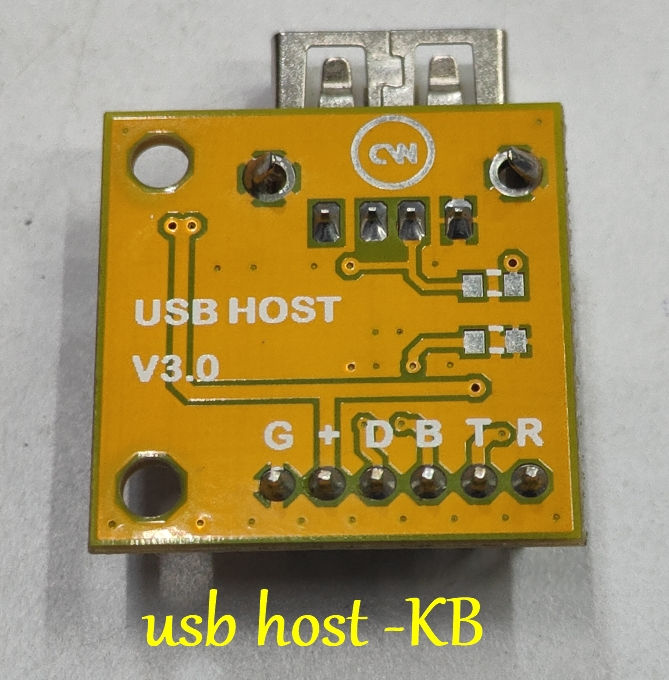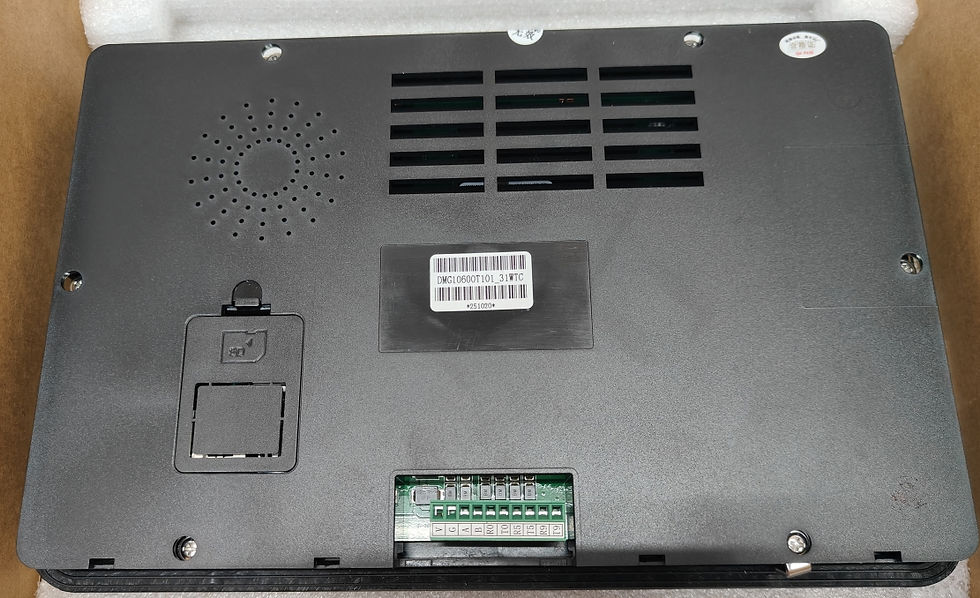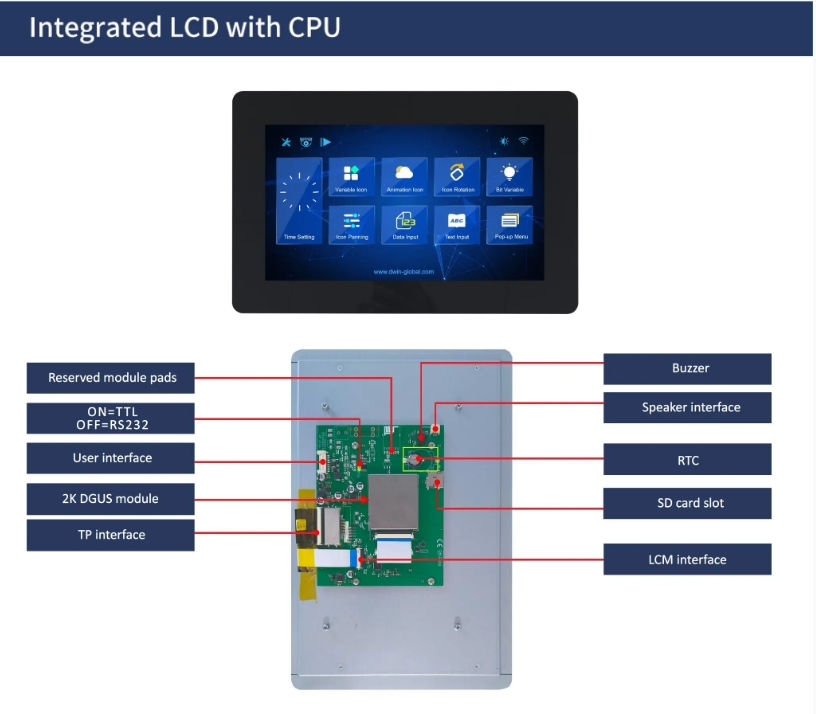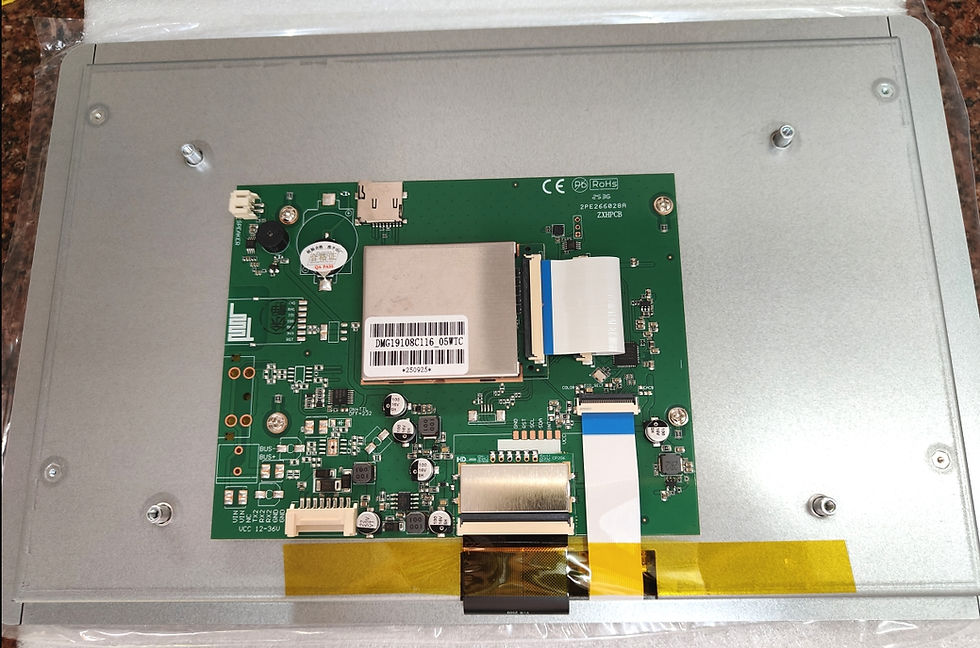Features
- 7inch IPS screen, 1024 x 600 hardware resolution, configurable by software (up to 1920 x 1080).
- Toughened glass capacitive touch panel, 6H hardness (case version only).
- When used with Raspberry Pi, supports Raspberry Pi OS / Ubuntu / Kali and Retropie.
- Use with Windows PC, support Windows 11 / 10 / 8.1 / 8 / 7, 5-point touch.
- Multi-language OSD menu, for power management, brightness/contrast adjustment, etc.
- It has a 3.5mm audio jack and supports HDMI audio output.
- Supports VGA input (specific cable is required and should be purchase separately).
- High-quality PC case, optional tilt angle: 30°/50°(case version only
Keys Introduction:
- Power: Open or Close the LCD display.
- Menu: Open the OSD menu (It can also work as an "OK button" after entering the menu).
- Up/Left: Direction button.
- Down/Right: Direction button.
- Exit: it can also work as Return after entering the menu.
You can use the "Power" button to close the LCD display for reducing consumption if it will be idle for a long time.
Open the OSD menu by pressing the "Menu" button, then use the "OK button" and "Direction button" to change the configuration, and finally, use the "Return button" to exit.
Working with Raspberry Pi
After the image has finished writing, open the config.txt file in the root directory of the TF card. 5) Add the following lines to the end of config.txt, then save and eject the TF card safely.
hdmi_force_hotplug=1
config_hdmi_boost=10
hdmi_group=2
hdmi_mode=87
hdmi_cvt 1024 600 60 6 0 0 0
Save and connect the TF card to your Pi then power up.
Connect the Touch interface of the LCD to the USB port of Raspberry Pi.
Connect the HDMI interface of the LCD to the HDMI port of Raspberry Pi.
































